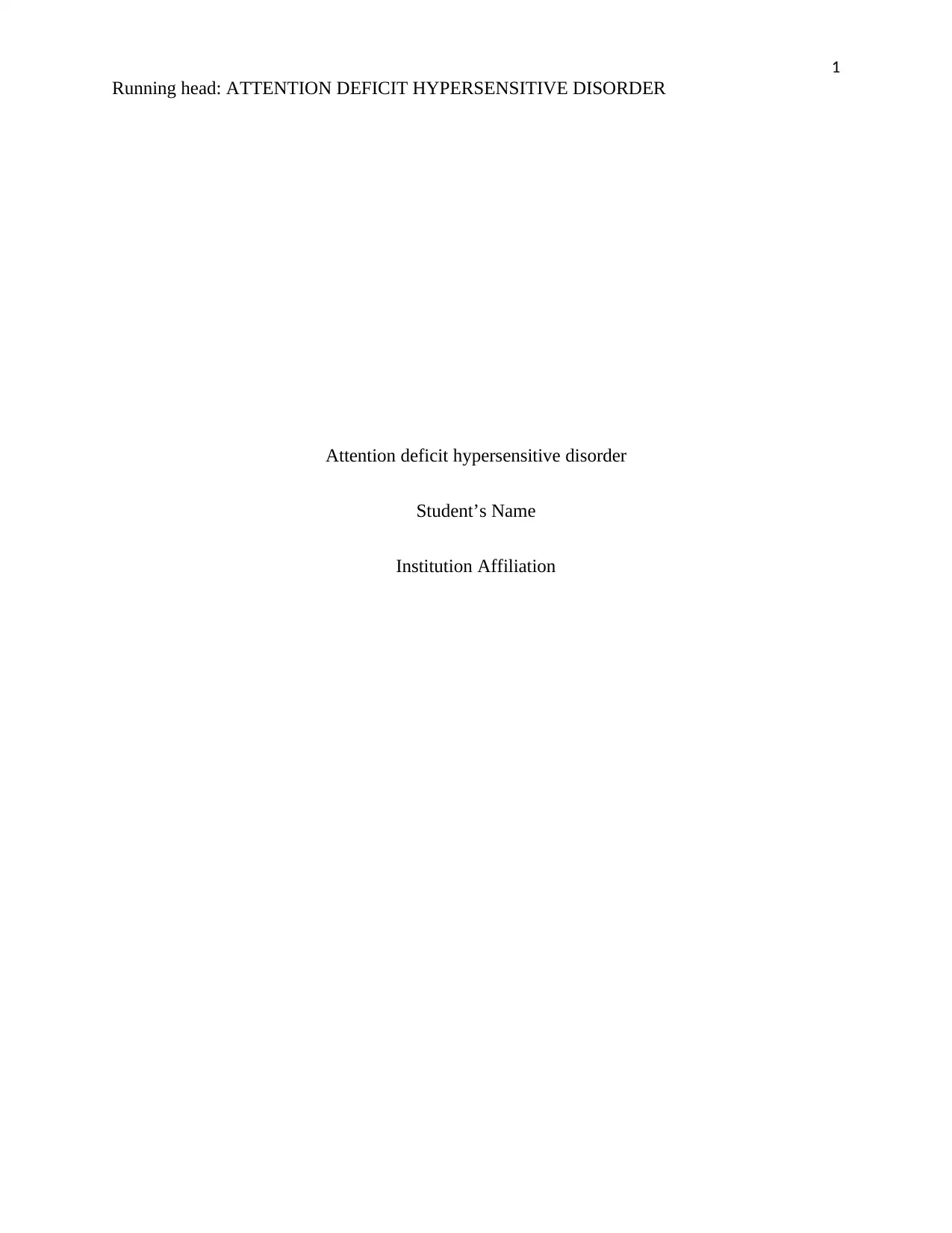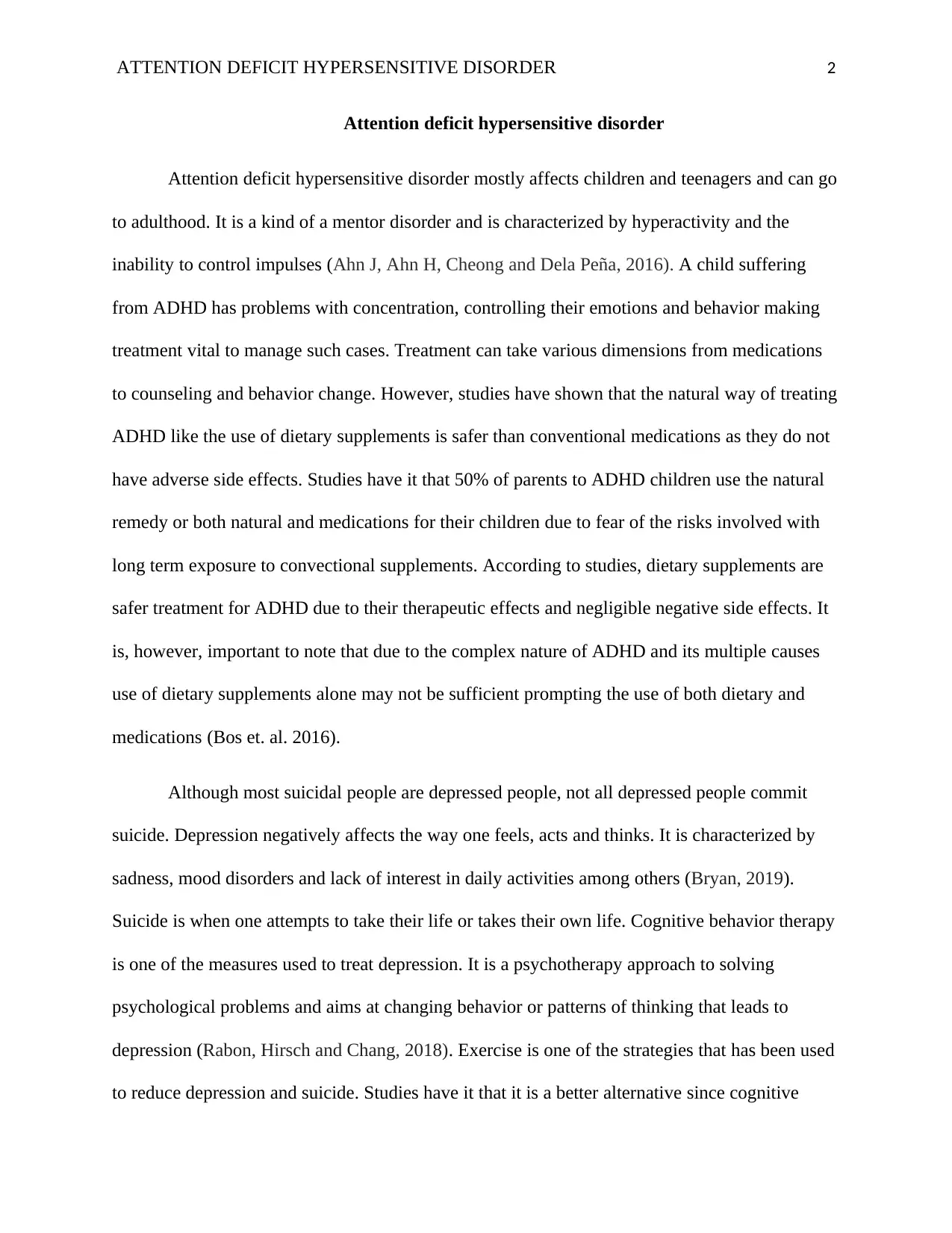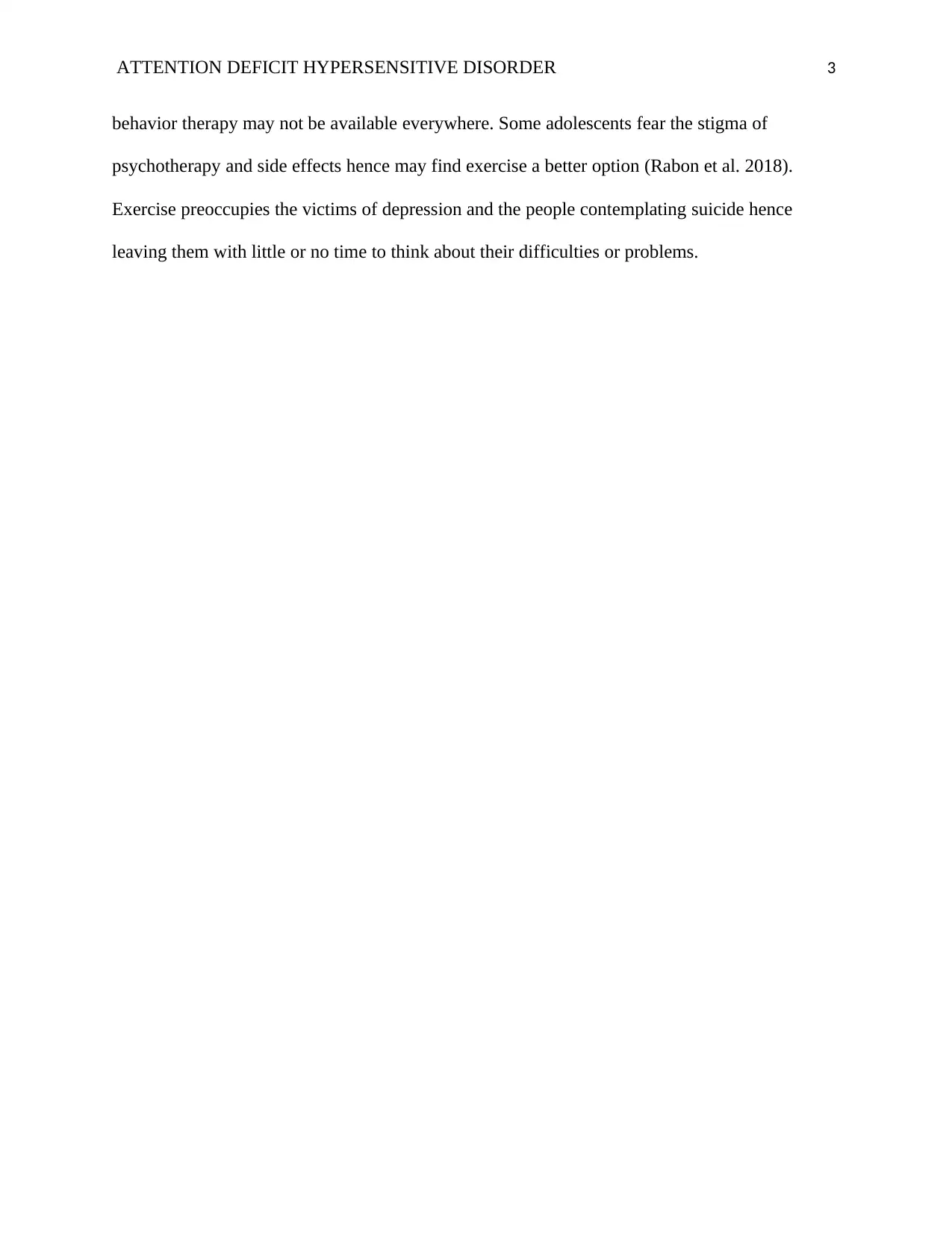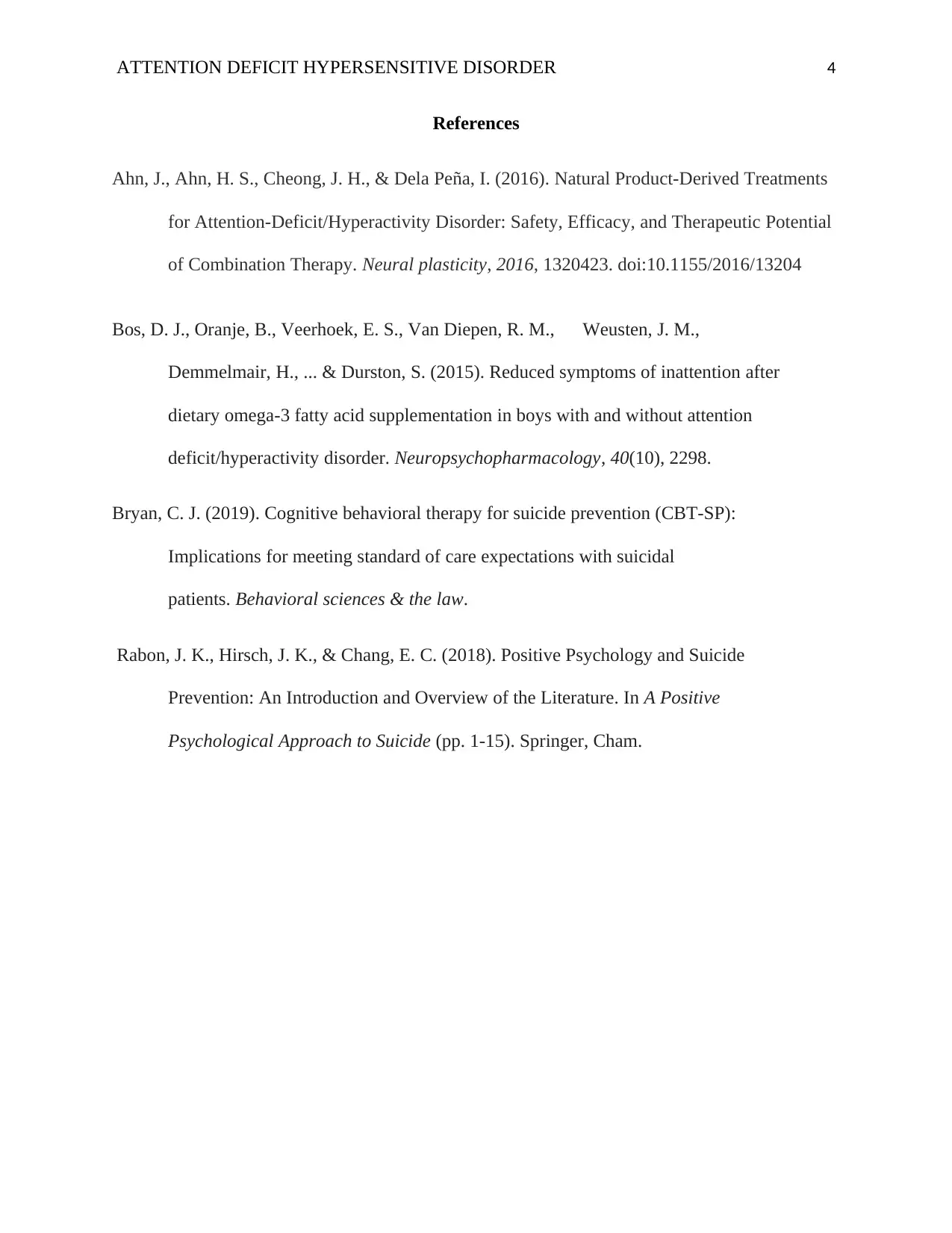The Impact of ADHD and Depression: Treatment Approaches Explored
VerifiedAdded on 2022/10/01
|4
|649
|26
Essay
AI Summary
This essay delves into the multifaceted nature of Attention Deficit Hyperactive Disorder (ADHD) and depression, highlighting the importance of effective treatment strategies. It explores various approaches, including dietary supplements, cognitive behavioral therapy, and the role of exercise. The essay emphasizes the potential of natural treatments like dietary supplements for ADHD, noting their safety compared to conventional medications. It also discusses the use of cognitive behavioral therapy for depression and the benefits of exercise in reducing symptoms and preventing suicidal thoughts. The author emphasizes the importance of considering multiple treatment options due to the complex nature of both conditions. The essay provides a comprehensive overview of the current research, offering valuable insights into managing these mental health challenges.
1 out of 4






![[object Object]](/_next/static/media/star-bottom.7253800d.svg)